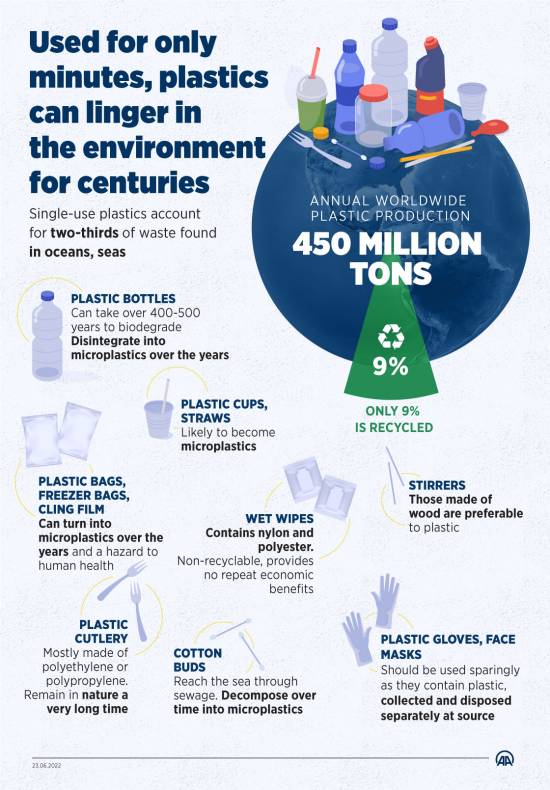'Single-use plastics pose huge risks to public health, environment'
Single-use plastics pose huge risks to public health and the environment, warned a Turkish expert, calling for a shift to alternatives for daily usage.
Single-use plastic products, which are used once, or for a short time, before being discarded, continue to cause health and waste problems globally, said Turgut Tuzun Onay, head of the Institute of Environmental Sciences at Bogazici University.
The world will face grave health and waste problems if the current trend continues and one billion tons of plastic are produced annually by 2050.
According to studies, the amount of greenhouse gas emitted in plastic production and burning is, more or less, equivalent to emissions from around 189 coal-fired power plants.
Speaking to Anadolu Agency, Onay said single-use plastics account for two-thirds of the waste found in oceans and seas.
Plastics turn into microplastics after a while due to environmental effects such as wind or rain, he said, explaining that as these microplastics interact with sea creatures, toxic chemicals seep into the food chain.
Single-use plastic products
Although there are reusable and sustainable alternatives, single-use plastic products are widely used globally.
However, amid increasing awareness about the threats plastics pose and many sobering reports on their long-term negative impacts on human health, some countries have accelerated efforts to phase out single-use plastics.
According to the EU, plastic cotton bud sticks, cutlery, plates, straws and stirrers, balloons and sticks for balloons, food containers, cups for beverages, beverage containers, cigarette butts, plastic bags, packets and wrappers, wet wipes and sanitary items are some of the single-use plastic products that should be limited across the bloc.
Though there are extra tax obligations imposed on companies that use, consume and distribute such materials in the EU, Onay noted that using plastic for a long time or exposing it to heat creates harmful toxins that poison human beings.
Plastics contain chemical additives such as endocrine disruptors that can cause cancers, birth defects, diabetes, and immune system suppression in humans and animals./aa


